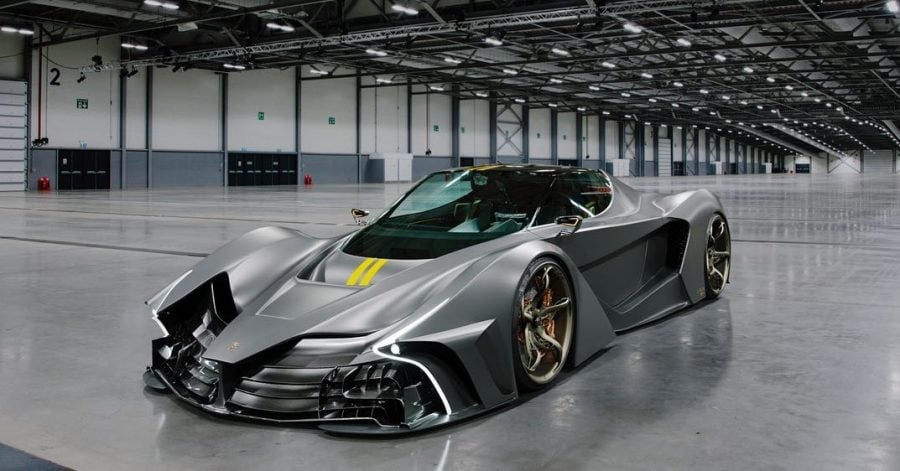Greek startup Spyros Panopoulos (SP) Automotive digitally unveiled the world’s first so-called ultra-car named Chaos.
What exactly is an ultra-car? According to the company’s founder Spyros Panopoulous, the Chaos ultra-car is a vehicle that accelerates like a Formula 1 car, recognizes and responds to driver’s mood and ability, and most of it is printed on a 3D printer using materials from aerospace technology, applied for the first time in a car.
The Chaos ultra-car delivers up to 3,065 horsepower and accelerates from 0-100 kilometers per hour in 1.55 seconds and from 100-200 kilometers per hour in another 1.7 seconds. It has a top speed of 500 kilometers per hour, which makes it one of the fastest cars in the world. The car is named after the ancient Greek word “chaos”, meaning the mythological void state preceding the creation of the universe.
“Since we have manufactured many performance car parts for a diversity of production cars, such as Lamborghinis and McLarens, we came up with the idea to create our own designed and produced car which will have all these parts, and will be a vehicle completed by us in its entirety,” Panopoulos told Greek Reporter.
With background in computer programming and the development of applied solutions, Panopoulos is also an avid racer. He has also filed over 30 new patents for innovative solutions used in the creation of the Chaos ultra-car.
According to the company, augmented reality, VR glasses, 5G, fingerprint recognition, voice commands, and facial recognition are just some of the technologies that the Chaos drivers will be able to experience.
However, the Chaos model has been only presented via digital pictures so far, and for many, there’s a long way to go until the actual production of the so-called ultra-car takes place.
“It takes a lot of money and also amazing engineering to be able to make a 3000 horsepower engine. They are also saying that gearbox will have “7 or 8 gears” which means that they haven’t gotten very far with the development,” Skopje-based automotive journalist Ivo Gievski comments for The Recursive.
“It seems the car is not ready for production yet, but we will see more on that in the next few months, depending on how serious the promotion is”, Gievski added.
Founded in 2019, SP Automotive specializes in designing and production of high-specification performance parts with internal combustion engine technology.
“It is the first Ultra car proudly made in Greece, the country where culture was born. There will be a limited number of chaos units (20) available for every continent,” Panopoulos wrote on his Facebook profile.
According to Panopoulus, Chaos will be priced from €5.5M for the basic version, up to €12.5M for the full specification model.








